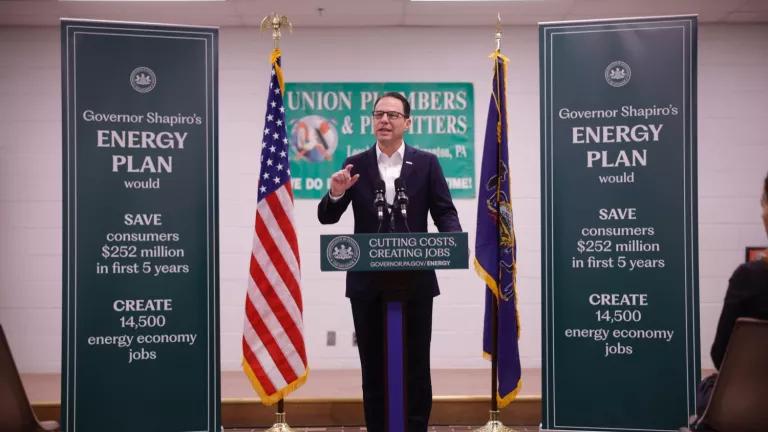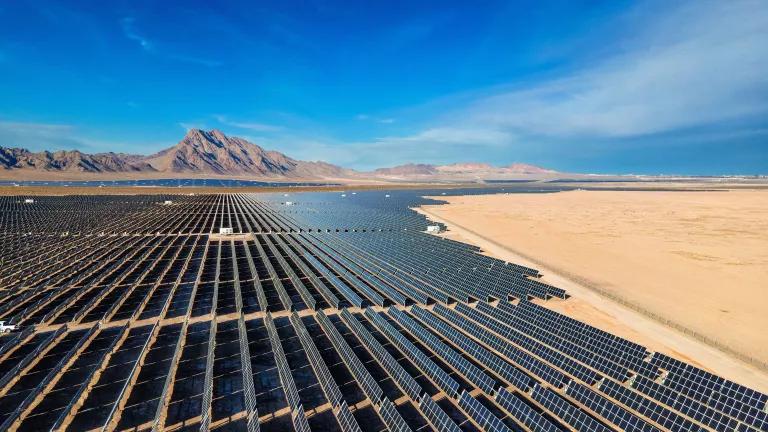G7 Countries Waste $100 Billion a Year on Coal, Oil, and Gas

Government support for coal, oil and gas in the G7 countries totals over $100 billion a year. This support for the production and consumption of oil, gas and coal not only wastes taxpayer money, it also runs counter to the pledges of the G7 nations to end fossil fuel subsidies by 2025. The Natural Resources Defense Council (NRDC), Overseas Development Institute (ODI), Oil Change International (OCI), and the International Institute for Sustainable Development (IISD) just published our G7 Fossil Fuel Subsidy Scorecard, ahead of the G7 Summit in Canada, where we ranked for the first time each G7 country on their transparency, commitments and progress made on ending support for the production and use of oil, gas and coal. (The G7 countries include Canada, France, Germany, Italy, Japan, United Kingdom, and the United States).
France ranked better than the rest, thanks to its progress in phasing out support to fossil fuel production and fossil-fuel based power. The United States ranked last on progress in removing fossil fuel subsidies, due to the massive amount of subsidies for fossil fuel exploration and production, as well as for backtracking on previous pledges to end support to fossil fuels.
The United Kingdom scored lowest on transparency. Canada, which holds the G7 presidency this year, scored highly on ending support to coal mining, fossil fuel-based power and fossil fuel use, but ranked poorly on reforming support to oil and gas production because it spends the most money per capita subsidizing oil and gas production. Japan ranks very poorly because of its continued subsidies for fossil fuel exploration and production, and because it provides billions in taxpayer dollars for building highly polluting coal plants in some of the most climate-vulnerable countries overseas.
Overall, the report finds G7 governments are still dedicating vast public resources to finding and using fossil fuels and are at serious risk of not delivering on their commitment to phase-out subsidies by 2025.
No G7 country scored perfectly on the commitment to end subsidies, as all of them will need to do better. At such a critical juncture for the low-carbon transition that is required for dealing with climate change, this is unacceptable.
The key findings of the report include:
- Despite repeated pledges to end fossil fuel subsidies G7 countries provided at least $100 billion annually (2015 and 2016) in government support for the production and consumption of oil, gas and coal, both at home and abroad in more than 50 countries around the world. This included $81 billion in fiscal support through direct spending and tax breaks; and $20 billion in public finance on average per year in 2015 and 2016.
- In tracking G7 countries’ progress towards meeting their 2025 fossil fuel subsidy phase-out pledge, this scorecard identified leaders and laggards across all seven indicators, but overall, no G7 country scored strongly; every G7 country is at serious risk of not delivering on their fossil fuel phase-out commitment.
- Among the G7, France scored highest due to its progress in ending support for fossil fuel production and power both at home and aboard, while the United States scored lowest due to continued support for exploration and production, and backtracking on previous pledges.
The recommendations for G7 leaders attending the upcoming summit in Canada on how to implement a fossil fuel subsidy phaseout include the following:
- Complete and publish comprehensive fossil fuel subsidy peer reviews no later than 2019.
- Establish country-level plans for fossil fuel subsidy phase-out starting with key subsidies with negative social and environmental impacts.
- Follow the example set by EU governments and develop these plans with the aim of meeting an earlier 2020 deadline.
- Ensure subsidies for energy transition do not support fossil fuels, and that any remaining support goes to facilitating a ‘just transition’ and to vulnerable communities and households
- Lead by example within other fossil fuel subsidy phase-out processes such as the G20 and Asia-Pacific Economic Cooperation, UN Sustainable Development Goals (SDGs), and United Nations Framework Convention on Climate Change.
- Establish a standing agenda item at the G7 Energy Ministerial meetings to track progress towards the 2025 deadline, with support from the Organisation for Economic Co-operation and Development, International Energy Agency and the International Monetary Fund.
The full report and scorecard are available here: https://www.nrdc.org/resources/g7-fossil-fuel-subsidy-scorecard
The in-depth country-briefs for each G7 country can be found here, including translations:
- G7 Canada scorecard (French Canadian version here)
- G7 France scorecard (French version here)
- G7 Germany scorecard (German version here)
- G7 Italy scorecard (Italian version here)
- G7 Japan scorecard (Japanese version here)
- G7 UK scorecard
- G7 US scorecard
The methodology is here: G7 fossil fuel subsidy scorecard methodology



